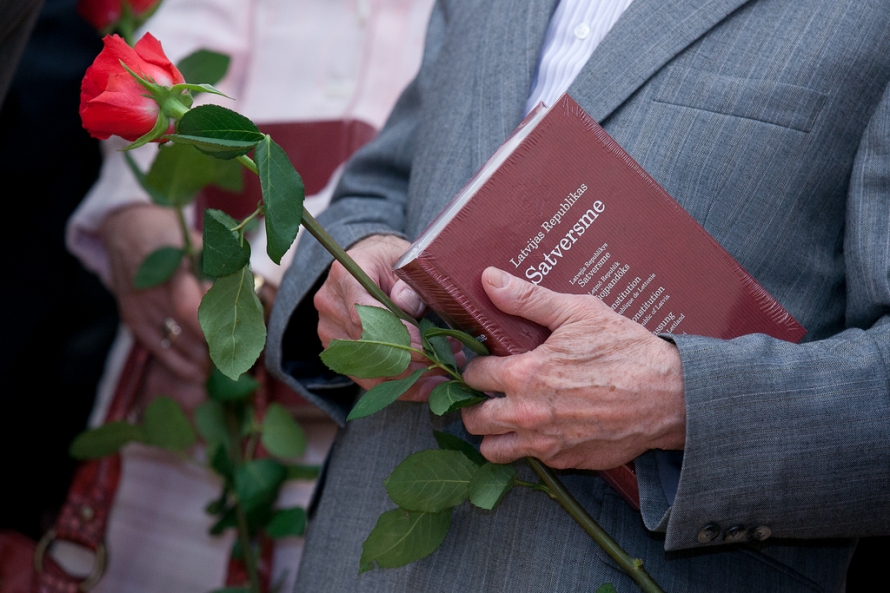What exactly is the 'preamble'?
A constitution’s preamble is the introductory statement of origin and purpose that justifies and explains the content of the document to its addressed constituents. A constitutional preamble is meant to persuade as to the reasoning behind a nation’s founding.
The Constitutional Assembly that adopted Latvia’s Satversme in 1918 voted not to append an extended preamble to the original draft, as a minority of delegates in favor failed to convince the Assembly as to why it was needed.
Why do supporters say it is needed?
The preamble is supported by those who believe the constitution needs a basic statement of purpose to explain the basis of the Latvian nation-state. With this preamble the Latvian nation will have finally declared the reasons for its creation and existence.
Why do opponents say it is not needed?
Opponents of the preamble argue that it specifically raises ethnic Latvians above people of other nationalities in Latvia by stating that its purpose is “to guarantee the existence of the Latvian nation.” As such this divides society and threatens its solidarity.
How common is it to alter the constitution?
Articles 76-79 state the provisions for amending the Satversme. The Saeima can amend most articles with a two-thirds majority except for Articles 1-6, and 77, which require a referendum.
No amendments to the Satversme were adopted during Latvia’s first period of independence. Since the restoration of de jure nationhood in 1991, the Satversme has been amended several times, including:
to lower the voting age from 21 to 18 in 1994;
to establish the Constitutional Court in 1996;
to make changes to the balance of powers between Saeima, the President, and Cabinet in 1997;
to add Article 8 on the protection of fundamental human rights; secure the official status of the Latvian language; establish a referendum requirement for certain amendments in 1998 (minimum one-tenth of the electorate to inititate, minimum one-half of the electorate to amend);
to allow the electorate the possibility of dissolving Saeima in 2009.
How will the preamble affect peoples' daily lives?
The adoption of the preamble, while prompting public discussion and political debate, is not expected to have any effect upon people’s daily lives.
What other countries have something similar?
Few countries have constitutions that do not have at least some introductory statement of purpose or spirit.
Estonia enacted its present constitution in 1992, including a brief preamble establishing continuity with the independent state proclaimed in 1918 and guaranteeing “the preservation of the Estonian nation, language and culture through the ages.” While no reference is made to their fight for freedom, Estonians begin their preamble “unwavering in their faith and with an unswerving will to safeguard… the inextinguishable right of the Estonian people to national self-determination.”
Lithuania also passed a new constitution in 1992 to establish continuity with the historic Lithuanian Nation and the State of Lithuania established “many centuries ago.” The Lithuanian preamble also mentions the defense of freedom and the imperative to preserve its native language and culture.
7) Now the preamble exists, is it set in stone or could it be removed?
The Harmony Center has said it believes the preamble is in contradiction to Article 2 of the Satversme, which defines the “people of Latvia” as a nation of citizens without reference to their ethnicity. The opposition party is considering whether to submit an appeal to the Constitutional Court to dispute the preamble’s constitutionality, or rather opt to try to initiate a popular referendum through an official signature campaign among the electorate.
























